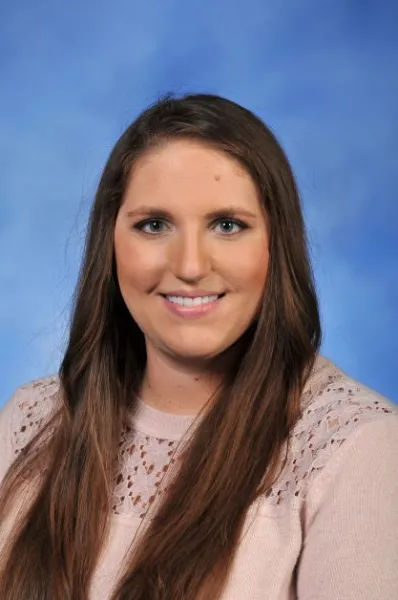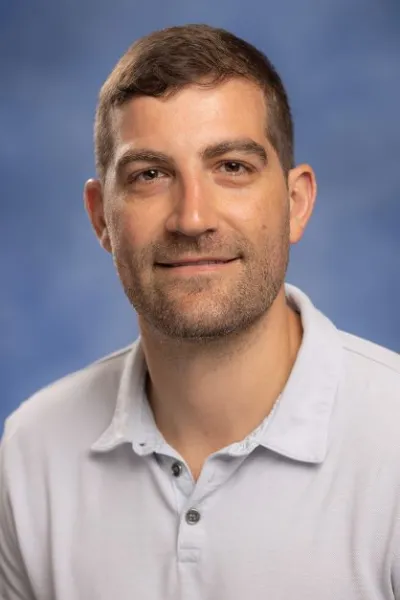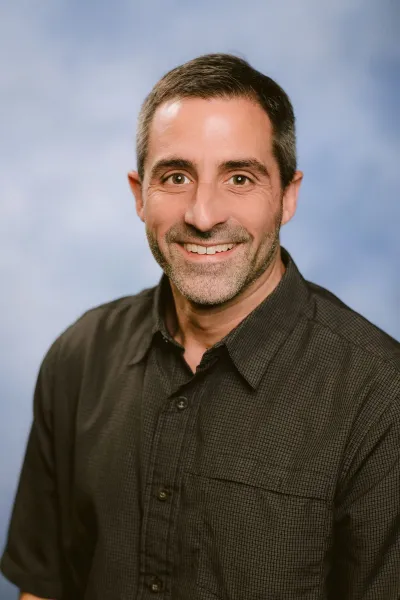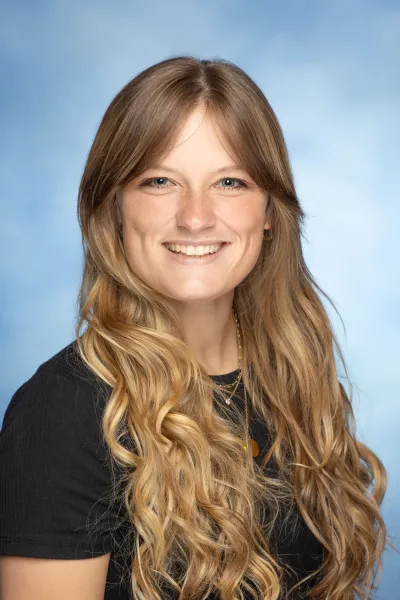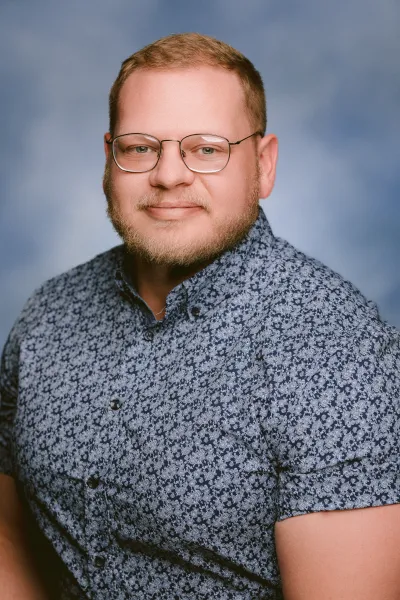Food Animal Medicine
and Surgery Residency
Additional Residency Resources learn more about our veterinary health system
Objectives
- Advanced clinical training and specialization in the diagnosis, medical and surgical treatment of diseases and disorders of the Food and Fiber animal species
- Facilitate obtaining MS or PhD degrees in Veterinary Clinical Sciences or related degree, if desired
- 3-year residency program leading to a Certificate of Residency
- Develop comprehensive, state-of-the-art expertise and clinical proficiency in medicine and surgery of food animals.
- Satisfy the criteria necessary to qualify for Board Certification by the American College of Veterinary Internal Medicine (ACVIM) or by the American College of Veterinary Surgeons (ACVS).
- Prepare for future career goals of teaching, clinical research, scientific publication, or specialized practice.
Prerequisites and Applications
- All potential residents must meet the minimum requirements and qualifications (see Residency Program Handbook)
- Applicants must be either U.S. citizens or permanent residents of the U.S. the Ohio State University cannot sponsor or process F, J, or H-1B visa applications for resident positions. We also cannot accept TN visas. Successful applicants must be available to report to The Ohio State University Department of Veterinary Clinical Sciences no later than the scheduled beginning of the program.
- Applicants must be graduates of an AVMA-recognized College or School of Veterinary Medicine and have completed a one-year rotating internship or acceptable equivalent clinical experience.
- All requirements must be met to hold and maintain a limited license to practice Veterinary medicine in the State of Ohio – click here for information on licensure requirements.
- For those residents who choose to enroll in an optional Master of Science degree program, the current admission requirements include:
- a minimum 3.0 GPA for all undergraduate coursework
- a minimum 3.0 GPA for professional (veterinary degree) studies
- a minimum 3.3 GPA for all graduate coursework
Employment and Benefits
For a full list of benefits, see the Residency Program Handbook
- Salary
- Health insurance
- Travel allowance
- Personal + Professional days leave (from policy)
- External consultation and employment – Is not allowed under the conditions of appointment
- Licensure
- Tuition assistance
Orientation
During the first week of the residency program, all incoming residents participate in a comprehensive orientation program to introduce them to the department, hospital, college and university, to complete necessary documentation, and to facilitate integration into our program activities.
Advisors and Mentoring
Clinical advisor
Each resident is assigned a clinical advisor at the beginning of the program. The advisor can be changed according to the individual needs and interests of the resident.
Academic advisor
The principal academic advisor is decided once the candidate selects an area of research. Residents generally interact with all Farm Animal Clinicians and with other faculty through attendance of courses. All residents are encouraged to select an MS project area or discuss several potential projects with the Farm Animal faculty at their first evaluation meeting.
Graduate committee (If applicable)
Once the specific area of research is approved, a graduate project advisory committee is formed during discussion with their thesis advisor to provide guidance in the developmental phase of the resident's research project. Furthermore, formal progress reports outlining project plan, data analysis and results are scheduled periodically to ensure the resident is making progress, prior to completion of the study. The graduate project advisory committee serves as the Examination committee for the Master's defense. These committees must consist of at least 2 graduate faculty members (M or P).
Mentoring
Case management is carried out under the guidance and collaboration of the resident with experienced faculty. Initially, residents are required to consult faculty on all clinical cases. As technical skills and knowledge base grows, input from the faculty will be less formal and dependent upon individual faculty preference. Residents are strongly encouraged to seek out the input of faculty on involved cases.
Clinical Service Responsibilities
- Description of service clinical operation – Residents are expected to attend daily rounds with students beginning at 0900 h. Residents are expected to be present when students are performing invasive or complex procedures to ensure appropriate patient management is provided at all times. Residents are expected to be responsible for patients, and answer ALL telephone calls after hours specifically dealing with hospitalized patients and all potential emergency calls. Residents are encouraged to seek the input of faculty on telephone calls where problems are anticipated.
- Clinical duty – Monday – Sunday coverage of hospitalized cases unless pre-arranged coverage by other house officers. Residents are expected to be available for consultation on all hospitalized patients while on clinic duty. Residents are provided 12 weeks "off-clinics" time, annually for specialty-exam (boards) preparation, Master's degree research, thesis and manuscript preparation. All off clinics time is be pre-arranged and approved by section head and clinical/research advisor.
- Expectations of development of clinical knowledge and skills – Residents are expected to read and become very familiar with large animal internal medicine and surgery; to become conversant with students, colleagues and clients on procedures, problems and alternatives such that they become independent of their mentors in the clinic.
- Faculty oversight and mentoring – Faculty will generally be consulted on all patient management for the 1st year of their program. After that, at the discretion of the faculty, the resident will be provided increased responsibility for case management and communications with students, staff and owners regarding their cases. Faculty will provide back-up for emergency duty on all cases and for each day of the year (including holidays). Residents should be aware that specific clients have formal agreements with the Hospital for Farm Animals, such that a faculty member must be contacted in the management of their animals. Some examples include: animals from Select Sires, Inc., Genex, several dairy farms and often camelid clients.
- Emergency duty – Expected of the house officers. Rotation to be determined depending upon the number of house officers and schedules.
Teaching Responsibilities
Teaching responsibilities include clinical teaching to 3rd and 4th year veterinary students assigned to the section as well as participating in teaching technical skills to 3rd year veterinary students during laboratories. Interested residents are given the opportunity to develop lecture skills by preparing and delivering selected formal classroom lectures to professional students.
Educational Opportunities
Numerous specialty seminars, conferences, and journal clubs are available for residents. One specialty seminar in either medicine or surgery is required weekly, providing the residents an opportunity to learn from others as well as improving lecture and presentation skills. A comprehensive collection of graduate level courses in medicine, surgery, and herd health provides residents with relevant course material for partial fulfillment of the Master of Science degree if desired.
Research and Scholarly Activity
- Without exception, each resident will have a "Research Advisor" and the resident will be responsible for planning, obtaining funding for, completing the agreed upon project and publishing the results in refereed journal(s). This requirement will be completed under the direct guidance of an experienced faculty clinician.
- Each resident must submit at least one scholarly paper to a refereed journal prior to completion of the residency program.
- Each resident must present at least one formal paper at a state or national veterinary meeting and it should be anticipated they will present the results of their project to the faculty prior to completion of their program.
Evaluations
- Department of Veterinary Clinical Sciences: Formal Resident Performance Evaluations are completed by December 1st and June 1st each year. Details of the nature and structure of these evaluations can be found in the Residency Program Handbook.
- A formal resident evaluation form (as adopted by the Graduate Studies Committee) is completed, presented to the resident for discussion. Once finalized the evaluation is distributed to the resident and Section Head as a matter of record.
- Specialty College evaluations currently consist of the requirements for ACVIM and ACVS board certification
Specialty College Requirements
- See GIG at www.ACVIM.org
- 104 weeks of clinical experience will be supervised by faculty. Of these 104 weeks, 52 must be directly supervised by ACVIM, ACVS diplomates, 16 weeks supervision with other specialties (ACVIM-Cardiology, Oncology, Ophthalmology, ACVR, ACVA, ACVP, ACVCP
- 1 week (40 hours minimum) in radiology and anatomic or clinical pathology
- Remainder of training is to include scholarly activity (research for thesis, writing thesis, manuscripts) and clinical duty which is not necessarily directly supervised.
Board Certification
- We offer a comprehensive didactic and clinical training program that we believe provides excellent preparation for successful completion of the board certifying examinations.
- It is important that our residents realize that although eventual board certification is clearly anticipated, our primary goal of our training program is to encourage and assist our residents in becoming highly skilled and expert internal medicine and surgery clinicians. However, continued funding of the resident program is contingent, in part, on the successful completion of board certification by the prior residents.
Expectations
What we expect of the resident:
We expect the resident to develop skills that provide him/her to be able to manage cases independent of the faculty and maintain the long standing tradition of the OSU College of Veterinary Medicine, Food Animal Medicine and Surgery rotations. We expect the candidate to seek input on cases when needed to ensure optimal case management.
What can the resident expect of their mentors:
The resident can be assured that faculty will be available for in house assistance with cases during their 3 year program. Faculty in this section will provide guidance and instruction in areas of specific relevance to Veterinary clinical medicine, information for board certification exams and for research as it applies to their area of expertise. Faculty will offer guidance as to appropriate faculty or staff whose expertise overlaps with the areas of interest of the residents research focus.
Updated 8/25/21
Contact Us
For general inquiries, please contact the VCS Education Program Coordinator:
Chelsea Souder
VCS Education Program Coordinator
Phone: 614-688-0332
Email: Souder.60@osu.edu
